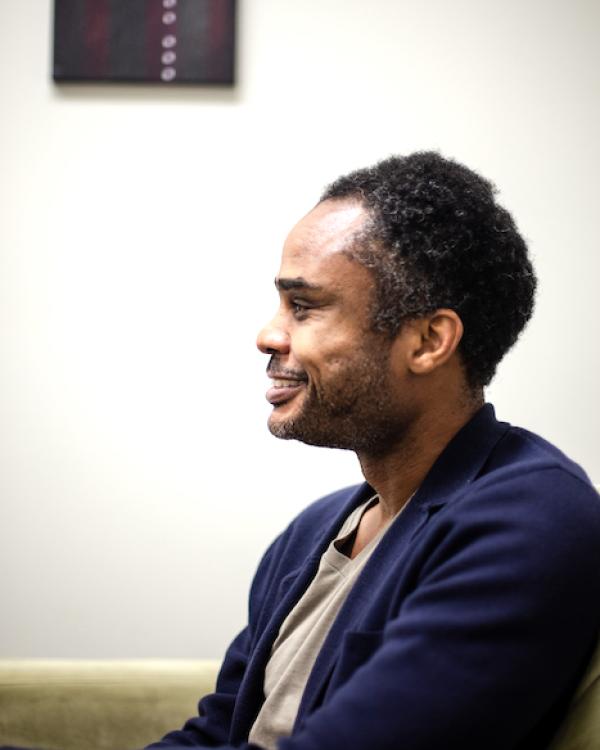
Jason Fly, one of the graduate student clinicians of the Healing Center
The murder of George Floyd, Breonna Taylor, among many others, and the activism of #BLM this past summer led Carrie Towbes to look for a place to take action, as she wondered what philanthropy could do locally. Towbes turned to Healing Justice Santa Barbara, a Black-led and Black-centered organizing collective that aspires to build resilient communities for the African diaspora and other marginalized people along the Central Coast. Specifically she talked with Jordan Killebrew, co-leader of Healing Justice (and also Director of Communications at the Santa Barbara Foundation). Killebrew’s first response was that Santa Barbara needed an Impact Hub for Black folks.
While establishing something that grand seemed out of reach, Killebrew also pointed out the pressing need for Black therapists in the Santa Barbara community, especially during the pandemic and ongoing anti-racial upheavals of 2020. As a clinical psychologist by training, Towbes knew first hand, as she put it, “Therapists are people first, and we bring all our baggage, including privilege and biases.” So the need for Black therapists was clear to her.
“I’ve always been bewildered by the separation of town and gown we have here,” Towbes says. “I look at UCSB as a resource for the community. Making the connection between Jordan [Healing Justice] and Steve [Smith, Director of the Hosford Clinic] seemed logical. It’s really exciting for me as a funder—it’s often just getting the right people talking to each other.”
Smith was eager to help have Hosford fulfill the Black community’s need for culturally appropriate therapists. Not only does the Hosford have four Black-identifying doctoral student therapists to provide services to the Black community in all of California (since all sessions remain on Zoom during COVID-19), but the Clinic is also developing webinars about racial stress and other topics. All of this crucial work has been supported by a generous gift from Towbes and John Lewis.
Smith also turned to Department of Counseling, Clinical and School Psychology colleague Dr. Alison Cerezo for help in launching the new clinic. “I am honored to help get the Healing Center off the ground,” Cerezo says. “Healing Center aims to provide a safe, culturally responsive space for Black residents to get mental health support, and for that support to be provided by Black therapists who have a keen understanding of the ways anti-Black racism operates in US society. Further, it’s critical that Black psychologists-in-training have a community of Black therapists with whom they can learn from and thrive.”
Those looking to receive services from the new Healing Center—named to reflect its connection to Healing Justice Santa Barbara—should email the clinic at hosford@ucsb.edu.
“I am excited about the Healing Center and the opportunities for providing accessible and sustainable mental health care for the Black community in Santa Barbara,” says Isabelle Fleury, M.Ed., one of the student therapists and a doctoral student in CCSP. “In a beach town like Santa Barbara—which has always had a Black community—it can be easy for folks to convince themselves that we live in a ‘post-racial’ society. Over this year, this illusion has finally begun to fade and it has become painfully clear that racism is a public health issue. For far too long, the mental well-being of Black people has been overlooked or dismissed. I see the establishment of the Healing Center as a critical step in repairing the devastating effects of injustices that Black people have had to endure for many generations.”
And all that restorative work began with a few phone calls and a well-timed donation.